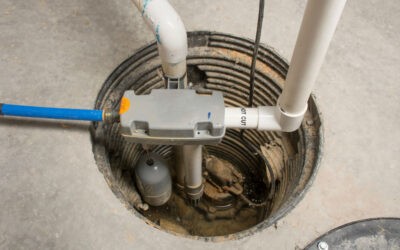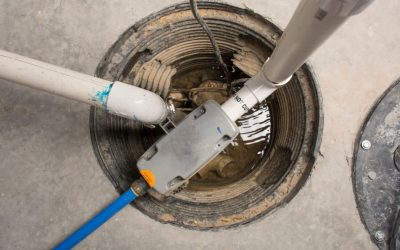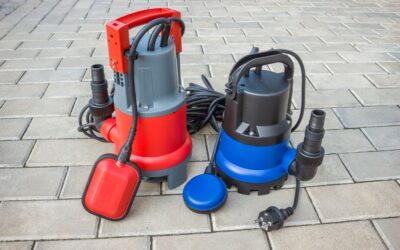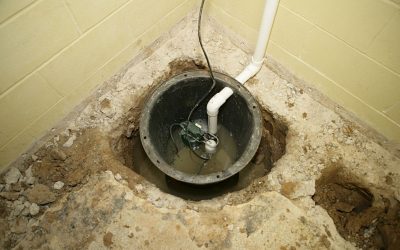Sump pumps are essential parts of your home plumbing system. They are designed to prevent water from flooding your basement or crawl space. If you don’t regularly check your sump pump, you might miss out on important maintenance.
Sump pumps are mechanical devices that remove water from the lowest point in your house. The water drains into a pit below the foundation, where it is pumped away through pipes. This prevents severe water damage to your home.
But how often should a sump pump run? Well, that’s what we’re here to answer. In this article, we will discuss the best practices for maintaining and operating your sump pump. Read on to learn more.
What Is A Sump Pump?
Before we learn how often a sump pump should run, let’s take a look at what a sump pump is and how it works.
A sump pump removes water from the lowest part of your home, usually the basement or crawlspace. It runs continuously so that water doesn’t build up in these areas.
Water can get trapped in basements because they tend to be lower than other rooms in your home. When there’s too much water, it can cause problems like mold growth and rot.
So, if you want to keep your basement dry, you need to make sure that your sump pump is working properly.
There are various sump pumps available, which can help you drain water from different parts of your home. Some are automatic, while others require manual operation.
In most cases, these pumps will be submersed in small pits located near the lowest point of your home. While some models do feature above-ground parts, the main system will always be hidden from sight.
So how do sump pumps work? This is something we have explained in more detail in the section below.
How Do Sump Pumps Work?
The mechanics of a sump pump are very straightforward. Basically, it consists of three parts: an electric motor, a pump, and a discharge pipe.
The motor turns the pump, which pushes the water out of the pit. Finally, the discharge pipe carries the water away.
When you first install a sump pump, you’ll notice that the entire unit is submerged in a shallow pool of water. As long as the pump is running, the water level will stay low. But when you turn off the power, the water will begin draining back into the pit.
That’s why it’s important to inspect your sump pump every few months. You can use a flashlight to see if any debris has built up around the pump. If you find anything, clear it right away. Otherwise, you could end up with a flooded basement!
Advantages & Disadvantages
Sump pumps come with many advantages. For one thing, they allow you to drain water from the lowest point of your house. That means that you won’t have to worry about water getting stuck inside walls or ceilings.
Also, since sump pumps are automated, you won’t have to remember to operate them manually.
On the flip side, sump pumps can cost quite a bit of money. They also require regular maintenance. And, even though they may be easy to install, they aren’t necessarily easy to repair.
If you live in a flood zone, then you definitely don’t want to skimp on your sump pump. Because flooding can cause serious damage to your property.
Despite their unattractive appearance, sump pumps are extremely useful and should not be overlooked.
How Often Should A Sump Pump Run?
Now we have come to the main part of our article: how often should a sump pump run? The short and simple answer is whenever it is needed.
As we mentioned above, sump pumps are automated and will only drain when a certain level of water has been reached. While some sump pumps will run almost every day, others will run a lot less depending on the weather and where you live.
If you live in an area known for its heavy rain, then your sump pump will run pretty often. However, if you live in a warm and dry area, your sump pump may go unused for months at a time.
While there is no schedule for how often your sump pump should run, it’s still important to make sure it works properly to avoid flooding and other problems.
Why Does My Sump Pump Run All The Time?
If your sump pump is constantly running, it might be because you have too much water in your basement.
It’s possible that the first floor of your home isn’t connected to the rest of the structure. Or maybe your foundation is leaking. Either way, this is bad news.
If your sump pump is broken, then you’re going to need to replace it. The good news is that most sump pumps are relatively inexpensive. So you shouldn’t have trouble finding a replacement.
However, if you think your sump pump is working fine , but it keeps running all the time, then this could be due to elemental factors.
For example, there could be a broken water main near your home. Or maybe the ground grade is contributing to the amount of water entering your basement.
Here are some other elemental factors that could be causing your sump pump to run:
- Natural water source – If your home is located near an underground spring or natural water source, then you’ll likely experience more frequent flooding than homes without such sources. This is especially true during periods of heavy rainfall.
- Groundwater Level – The groundwater level can also contribute to the amount of water entering your home, which makes it harder for your sump pump to keep up. When the groundwater level rises, it pushes more water into your basement.
- Water mains – When an underground water main breaks, it can cause a range of different problems. Fortunately, you can turn off the main water supply to give your sump pump a rest.
- Negative ground grade – If you live in an area with a negative ground grade, then the water can collect at the lowest point of your home. In these cases, the sump pump will work to drain the water from your house. However, you will still need to hire a professional landscaper to level the ground and stop the flow of water.
Conclusion
Sump pumps are very useful devices. They help prevent flooding and other damage to your property. But they aren’t perfect. And while they do their job well, sometimes they don’t get enough use.
That’s why it’s important to check them regularly. Sump pumps will only run when a certain level of water has been met.
So if your pump is running constantly, it could mean that your home is susceptible to flooding and excess water. Whether because of bad weather or other elemental factors. If you’re having issues with your sump pump, it is highly suggested to contact a plumber.






